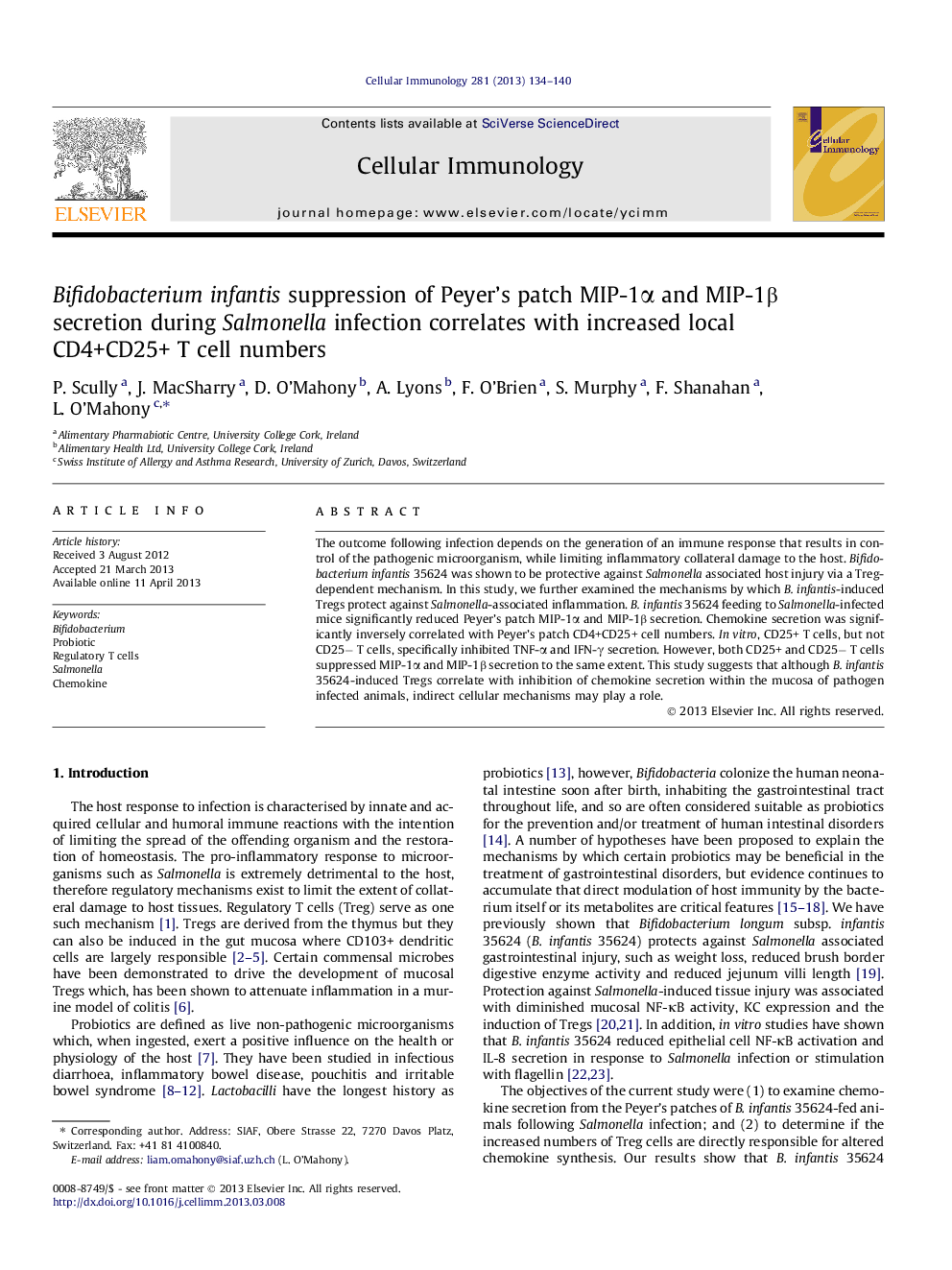| Article ID | Journal | Published Year | Pages | File Type |
|---|---|---|---|---|
| 2167086 | Cellular Immunology | 2013 | 7 Pages |
•Bifidobacterium infantis 35624 significantly reduces mucosal chemokine secretion during Salmonella infection.•Chemokine secretion was inversely correlated with Peyer’s patch CD4+CD25+ cell numbers.•In vitro studies suggest that direct and indirect cellular mechanisms may play a role.
The outcome following infection depends on the generation of an immune response that results in control of the pathogenic microorganism, while limiting inflammatory collateral damage to the host. Bifidobacterium infantis 35624 was shown to be protective against Salmonella associated host injury via a Treg-dependent mechanism. In this study, we further examined the mechanisms by which B. infantis-induced Tregs protect against Salmonella-associated inflammation. B. infantis 35624 feeding to Salmonella-infected mice significantly reduced Peyer’s patch MIP-1α and MIP-1β secretion. Chemokine secretion was significantly inversely correlated with Peyer’s patch CD4+CD25+ cell numbers. In vitro, CD25+ T cells, but not CD25− T cells, specifically inhibited TNF-α and IFN-γ secretion. However, both CD25+ and CD25− T cells suppressed MIP-1α and MIP-1β secretion to the same extent. This study suggests that although B. infantis 35624-induced Tregs correlate with inhibition of chemokine secretion within the mucosa of pathogen infected animals, indirect cellular mechanisms may play a role.
